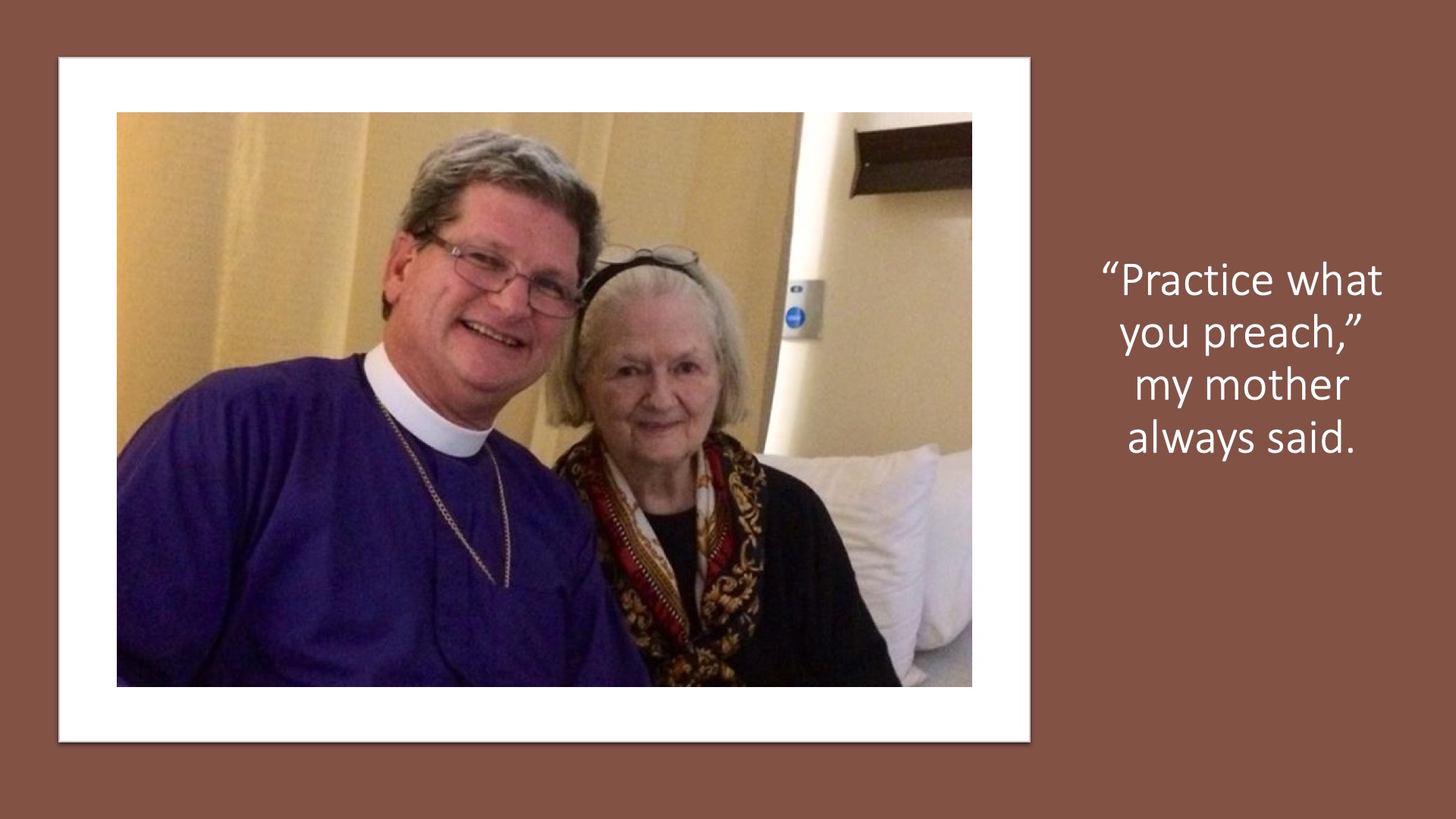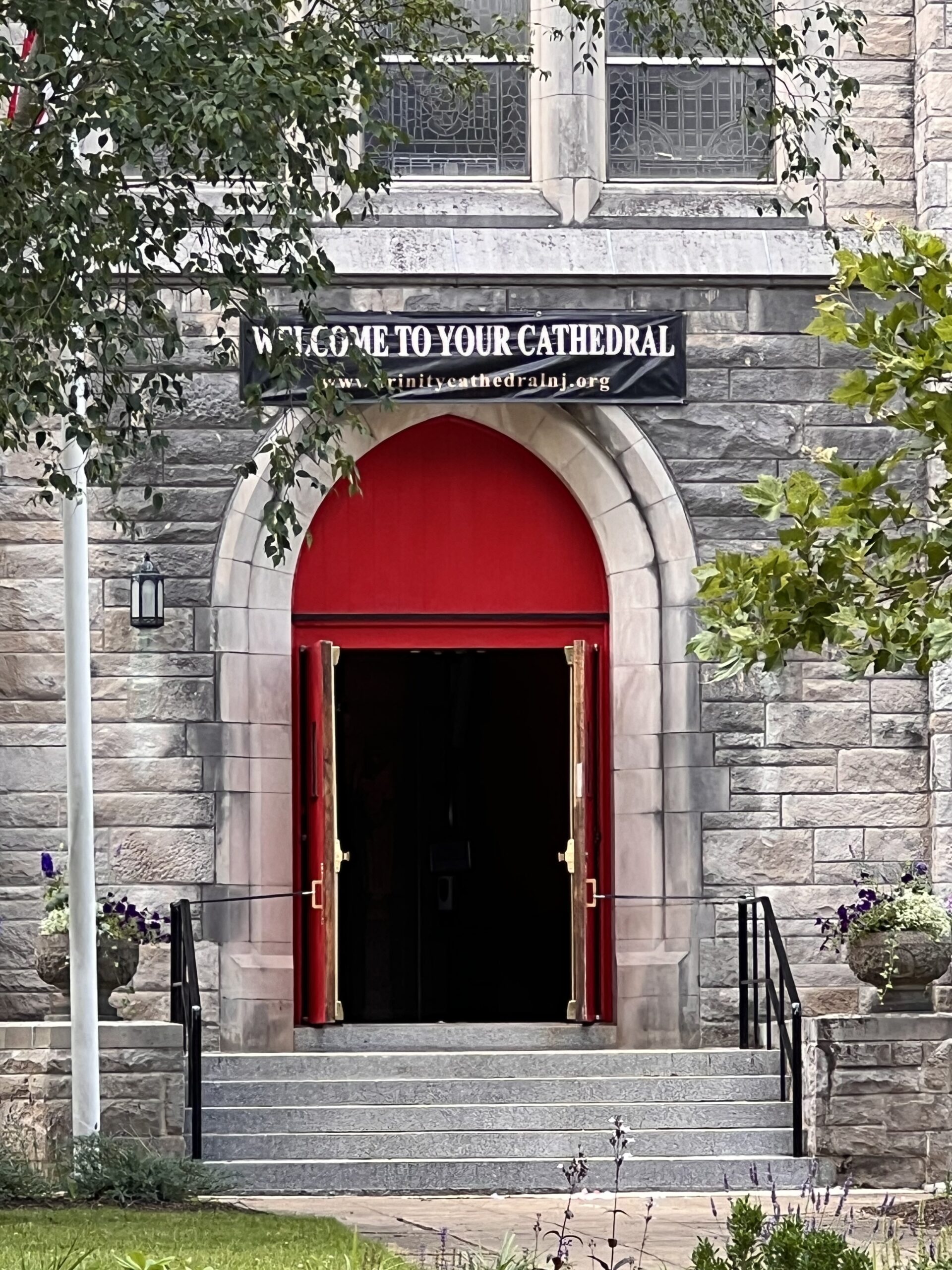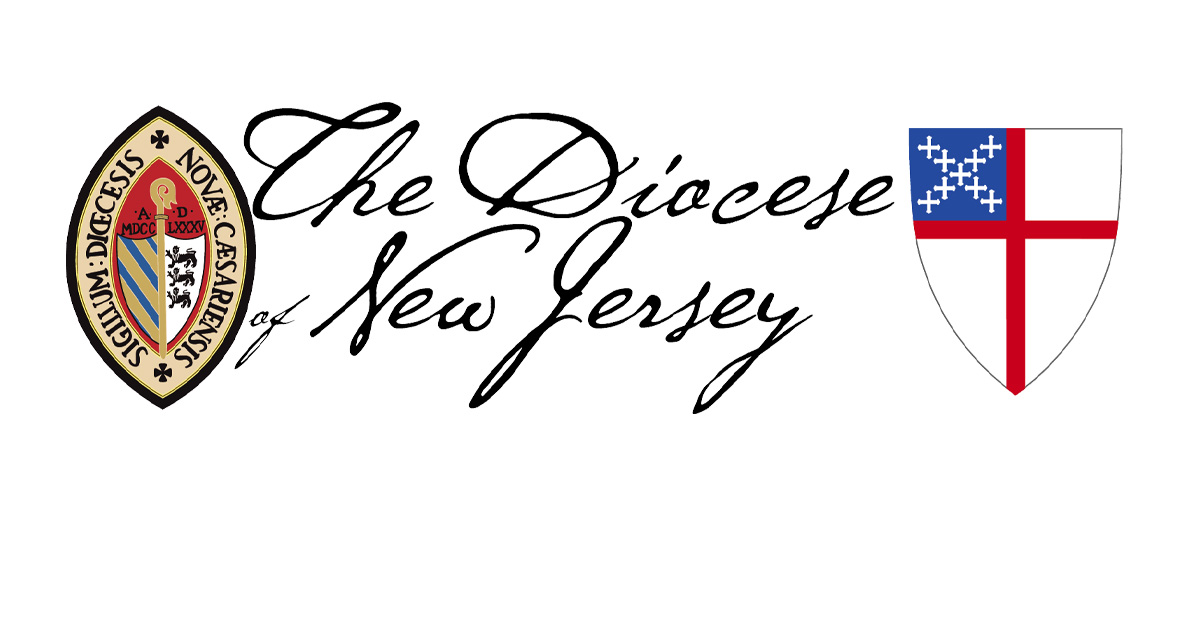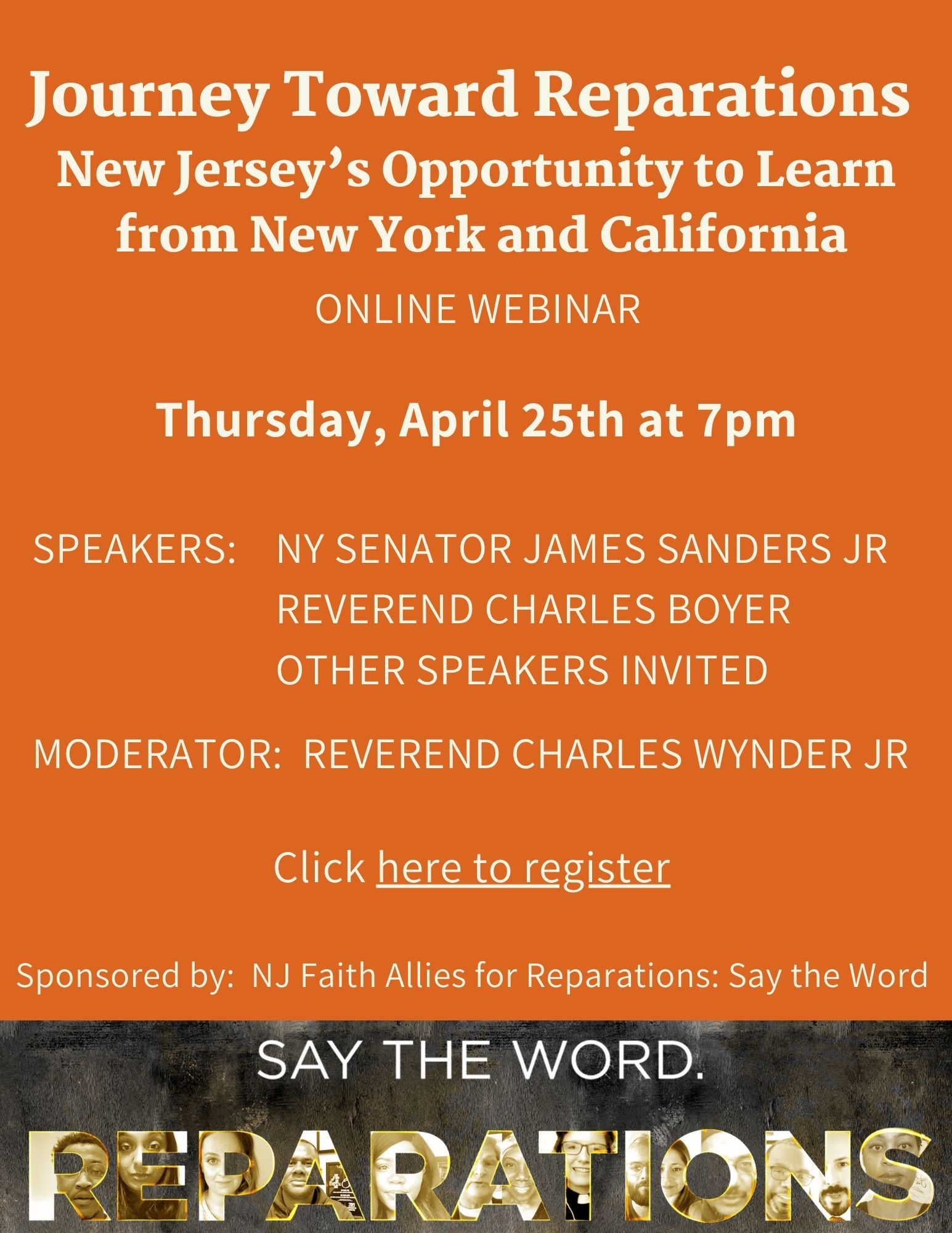The Diocese of New Jersey Online Sermon
14 Pentecost – Proper 17 – August 28, 2021
James 2:17 – 27; Mark 7:1- 8, 14-15, 21 – 23
Preacher: The Right Reverend William H. Stokes
This people honors me with their lips,
but their hearts are far from me…
Mark 7:6 (quoting Isaiah 29:13)
“Practice what you preach,” my mother always said. Both today’s Gospel reading from Mark and the reading from the Letter of James seem to relate to this idea: Practice what you preach.
In today’s Gospel reading from Mark, Jesus is critical of some Pharisees who are quick to jump on him because his disciples are not living into their expectations of faithfulness. Jesus is not critical of tradition per se. He is, however, critical of those who don’t practice what they preach.
‘This people honors me with their lips,
but their hearts are far from me;
in vain do they worship me,
teaching human precepts as doctrines.’
Jesus is quoting Isaiah to deliver a devastating rebuke.
Jesus is challenging the hypocrisy of some Pharisees who appear overly focused on a custom that was not even a universal practice within Judaism even as they ignore a significant commandment that has real implications – honoring and caring for mother and father. In many places Jesus upholds the traditions of Israel and its faith, and upholds the Law, as he does here by citing the Torah and Exodus 20:12. So we should be careful in how we interpret this passage.
In truth, these Pharisees can stand in for religious people of every age, including those who claim the identity Christian, whose sight becomes myopic and who thereby lose sight of the larger purposes of God and the meanings of God’s commandments.
Practice what you preach. It’s hard, it’s really hard. I preach Christ and Christ’s love. Both set a high bar for living. Practicing what I preach, what we as Christians and Episcopalians preach, is difficult, especially in a world is filled with hatred, addicted to violence; a world in which ridicule, snarkiness and cynicism are the coin of the realm. We live in a materialistic society where the gap between the haves and the have-nots is enormous. The injustice of it clear. The apathy about it even clear. Practicing what we preach in the midst of all this is difficult, maybe even impossible. I fall short all the time; I suspect you do too.
We’re human – fractured, fallen, sinful, finite human beings in need of God’s redemption and God’s love, which, thankfully, God offers us, abundantly, all the time. It’s this that allows us to stand on our feet, invites us to keep at it. Practice what you preach.
As disciples of Jesus Christ, we have something worth preaching and practicing. We are a people called to offer some good to the world and society in which we live. We have what James refers to in our appointed reading for today as “the perfect law of liberty” (1:25).
The Letter of James is considered a “general epistle.” It wasn’t written to a specific church community gathered in a particular place like the Church in Corinth or the Church in Philippi. It was written for a broader Christian audience, likely one that was “Jewish-Christian.”
In her commentary on this passage for the website Working Preacher, Professor Casey Thornburgh Sigmon writes, “James reads like a collection of sayings and teachings for a developing community of Christ-followers hoping to distinguish themselves from the world by how they live together.”[1]
Sigmon offers further insight about this epistle when she writes, “‘Half a foot between knowledge and wisdom’: that’s the short and oh so very long of the situation in James. There is a gap between knowledge (knowing in my mind ideas about God) and wisdom (living and acting from the soul what I know of and about God in my mind). It was a critical gap in James’ religious community nearly two thousand years ago. And it is a critical gap now in so many of our religious communities.”[2] Sounds like the gap between “practice” and “preaching” in my mother’s admonition.
What is the law of liberty to which James refers? In our culture today, the word “liberty” has become a trope for a distorted exercise of individualism no matter the cost. This understanding of so-called “liberty” is clearly illustrated in a story that appeared in U.S.A Today earlier this month titled “The COVID culture war: At what point should personal freedom yield to the common good?” by Journalist Dennis Wagner.[3] In the article, Wagner reports on the observation by Michael Sandel, a Harvard professor of government who teaches a course on ethics in an age of pandemics, that mask-wearing has emerged as “a new front in the culture wars.”[4]
According to Sandel, “Even as the pandemic highlights our mutual dependence, it is striking how little solidarity and shared sacrifice it has called forth.” Sandel continues, “The pandemic caught us unprepared – logistically and medically, but also morally. … (It) arrived at just the wrong moment – amid toxic politics, incompetent leadership and fraying social bonds.”[5]
In that same article, Steven Tipton, a professor of sociology and religion at Emory University observed, “It’s an act of defiance,” and characterized it saying, “‘You can’t make me.’ And I will enact my own freedom even if it kills me and others around me who I love.’”[6]
Is this acting out the “law of liberty” to which the Letter of James refers? Of course, it’s not. True liberty, Christian liberty, will always have the needs and welfare of others in sight, understanding that these have a sacred claim on each of us. This is clear in the Torah of the Hebrew scriptures; it is clear in the Gospel of Jesus Christ.
Commenting on James’ use of the term “the law of liberty” one source notes: “To the author of James, the perfect law…is the law of God as understood in the Old Testament and as understood by Jesus in the Gospels. By calling it the law of liberty [the author of James] reflects the then current Jewish teaching that obedience to the law is true freedom.’[7] Another source confirms this, ““The idiom ‘the perfect law of liberty’ (1:25) is crucial for every general understanding of James….As the ‘royal law’ in 2:8, ‘the perfect law’ should be understood as the OT law as interpreted and completed by Jesus (cf. Mt. 5:17, 48).”[8]
Jesus summarizes this “perfect law” when he says, ‘You shall love the Lord your God with all your heart, and with all your soul, and with all your mind.’’ And declares, “This is the greatest and first commandment. And a second is like it: ‘You shall love your neighbor as yourself.’ Declaring further, “On these two commandments hang all the law and the prophets”[9]
The perfect law is the law of love. It is a gift and grace of God. James makes this clear when he writes, “Every generous act of giving, with every perfect gift, is from above, coming down from the Father of lights, with whom there is no variation or shadow due to change. In fulfillment of his own purpose he gave us birth by the word of truth, so that we would become a kind of first fruits of his creatures”(1:17 – 18). God’s own purpose is love.[10] The word of truth is Christ and his Gospel.[11] God wants us to carry out this purpose by loving in Christ.[12]
Our reading from James makes clear what this looks like: “You must understand this, my beloved: let everyone be quick to listen, slow to speak, slow to anger; for your anger does not produce God’s righteousness”(1:19-20). These are words we call need to “read, mark and inwardly digest”[13] today.
James continues, “Therefore rid yourselves of all sordidness and rank growth of wickedness, and welcome with meekness the implanted word that has the power to save your souls”(1:21). This “implanted word” may be the spirit of the Word that is Christ given us at baptism, or the teachings of Christ that we as Christians have been gifted through faith.[14] We are called to welcome these, to be hospitable to them, to allow them to make a home in us, and more than this, allow them to drive our actions.
James continues, But be doers of the word, and not merely hearers who deceive themselves (1:22). This faith of ours, this love, this God-given love in Christ, can’t all be in our heads. It needs to be expressed in our lives, in action, action which is blessed by God because it is a response of our love to God’s love.
James is critical of those who talk a lot, but don’t act much, admonishing those who claim to be religious, but who “do not bridle their tongues” (1:26). He says they “deceive their hearts: and concludes “their religion is worthless” (1:26). He upholds, instead, religion that that acts, that loves that is “pure and undefiled before God, the Father” wherein those who live it “care for orphans and widows in their distress” and keep themselves “unstained by the world” (1:27), which is a very difficult thing to accomplish.
In James’ view and, in truth, in the view of much of Scripture, faith in God is expressed in loving actions, actions for the sake of others; actions for the sake of the world, practicing what we preach. In this, we honor God not only with our lips, but in our lives, keeping our hearts close to the source of all life and all love through Christ Jesus our Savior and Lord.
So practice what you preach, and when it becomes a struggle, or even when you fail, practice again. Practice, practice, practice.
__________________
Notes
[1] Sigmon, Casey Thornburgh “Commentary on James 1:17-27” for August 29, 2021 on Working Preacher website found at https://www.workingpreacher.org/commentaries/revised-common-lectionary/ordinary-22-2/commentary-on-james-117-27-5
[2] Sigmon – art. cit.
[3] Wagner, Dennis ““The COVID culture war: At what point should personal freedom yield to the common good?” – USA Today (On-Line) – August 2, 2021 found at “The COVID culture war: At what point should personal freedom yield to the common good?”
[4] Wagner – art.cit.
[5] Wagner – art. cit.
[6] Wagner – art. cit.
[7] Scheef, Jr., Richard L. – “The Letter of James” – The Interpreters One-Volume Commentary on the Bible ed. Charles M. Laymon (Nashville: Abingdon Press, 1971) p. 919
[8] Reiser, Rainer – “James” – The Oxford Bible Commentary ed. John Barton and John Muddiman (Oxford: Oxford University Press, 2001) p. 1258
[9] See Matthew 22:37-40
[10] See John 3:16
[11] See John 14:6
[12] See John 15:12-17
[13] See Collect for Proper 28 in The Book of Common Prayer (1979), p. 236.
[14] See Leahy, S.J., Thomas W., “The Epistle of James” – The New Jerome Biblical Commentary ed. Raymond Brown, S.S. et. al (Englewood Cliffs, N.J.: Prentice Hall, 1990) p. 911. and Scheef, art.cit p. 918.















